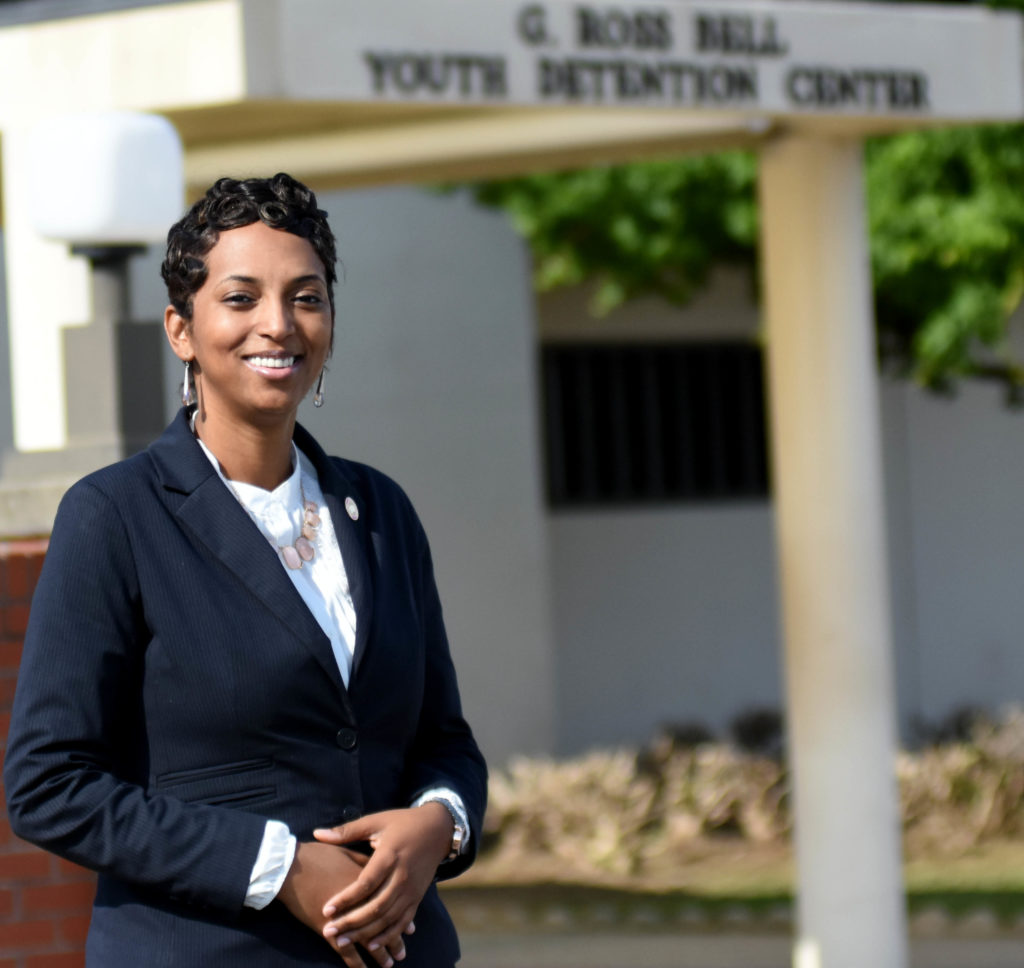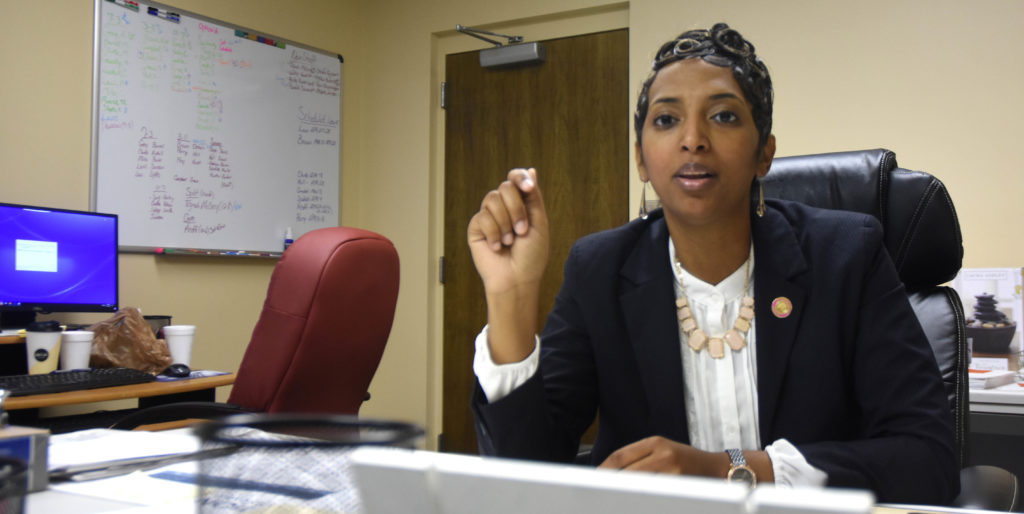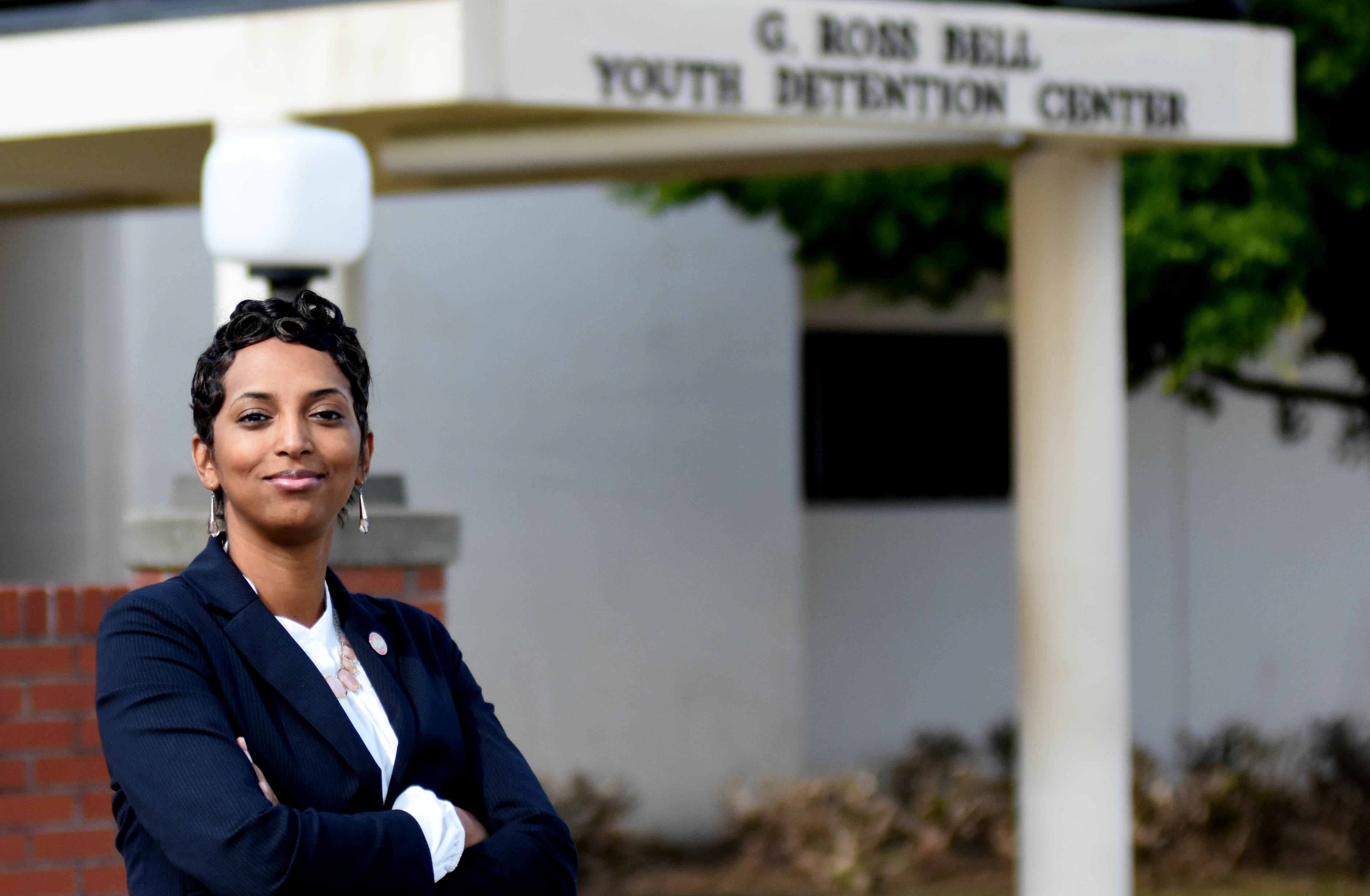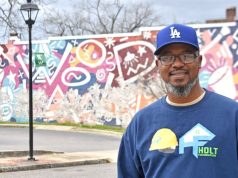By Solomon Crenshaw Jr.
For the Birmingham Times

(Solomon Crenshaw Jr. photos, for The Birmingham Times)
Metro Atlanta’s Pebblebrook High School was a performing arts school when Monique Grier was a student there from 1990 to 1994, but she didn’t attend because of the arts.
“I was there because I lived in the district of the school,” the 42-year-old said. “Other kids came from hours away, but I was so fortunate that I lived in the community.”
Still, Grier said, her high school peers would say she was as talented as anyone else at the school. Her skills: advocating for change, such as when she spearheaded an effort to provide better lunch menu options.
“We ended up with a salad bar because I thought we ought to have a voice in what we ate,” she said.
Students who followed her also benefitted from a new high school gym that included a covered patio for recreation.
These days Grier isn’t advocating for modifications on a cafeteria menu or in a high school gymnasium. Today she’s focused on improving the lives of young people under her charge at the Jefferson County’s G. Ross Bell Youth Detention Center, where she has served as director since October 2017.
Grier was recruited after supervising the Faith and Justice unit of the Georgia Department of Community Supervision for nearly two years. Prior to that, she was the statewide community partnership coordinator for the Georgia Department Juvenile Justice.
Wanted to Help
Grier, who has an extensive career in law enforcement and public safety, helps those who have been incarcerated get their lives back.
“I didn’t ever see myself as a patrol officer or a beat cop, but I knew I wanted involvement with law enforcement,” she said. “I knew I wanted to serve. I knew I wanted to help.”
That help includes educating the community about criminal justice, as well as the importance of second chances, working together, and forgiveness.
“Oftentimes, men, women, and children are penalized; they serve their time, they complete all the requirements handed to them by the court, and it’s held against them for the rest of their lives,” Grier said. “They are forever guilty, considered an inmate, a probationer, or whatever other labels we put on them.”
‘All Have Potential’
There is a huge need for an effective place for rehabilitation because some men, women, and children who come through the justice system leave the same way they entered—and Grier doesn’t want to see anyone discarded.
“I don’t think any of my kids are throwaway kids,” she said of the young people at the detention center. “I believe they all have potential.
“Have they done some heinous things? Some, a few here and there. Have they committed some crimes and deviant acts? Absolutely, they have. Do we owe them a debt to help them do better? Absolutely, we do.”
The G. Ross Bell Youth Detention Center has an 80-bed capacity for young people who range in age from 9 to 18, but the facility is more than a place to house the youth, according to Grier.
“Once you have them, what do you do to correct these things?” she said of their behaviors.
Grier hopes to engage the faith community, schools, and the general community to put formerly detained youth on a better path.
“Certainly,” the detention center director said, “it takes a village.”
 Seen and Not Heard
Seen and Not Heard
Grier, a mother of two daughters—a 22-year-old grad student and a 17-year-old high school senior—and a 12-year-old son, remembers a time when children were seen and not heard.
“We fought against that, but certainly in a very respectful way,” she said. “We wanted to be heard [when it came to] about things that concerned us.”
Grier, who stands 5 feet 10 inches tall, grew up in Mableton, Ga., a small, working-class community where teachers and politicians were also coaches on youth sports teams.
“It was a time when spending the night in a teacher’s home was not unheard of or taboo,” Grier said. “There was a lot of involvement. I think my love of working with children to make their lives better came from those relationships.”
Law enforcement has long been a part of Grier’s life. Her mother retired as a lieutenant of security from the Department of Juvenile Justice in Georgia. Her stepfather retired from the Georgia Department of Corrections and was on loan to the Georgia Bureau of Investigation as a fugitive investigator. Law enforcement was even part of her family’s TV-viewing choices.
“I love ‘Columbo.’ I probably have the whole disc set,” she said. “My parents loved TV detectives, too. We started off with ‘Perry Mason,’ then ‘Kojak,’ ‘Columbo,’ and my mom’s favorite show, ‘Hill Street Blues.’ Loved it.”
Grier earned a bachelor’s degree in psychology from Georgia State University and a master’s degree in public safety administration through the Georgia Command College at Columbus State University.
Job of Her Dreams
The Command College is a law enforcement school designed to equip leaders with the essential skills needed for operating and commanding a public safety department or entity. After working for the Georgia Department of Corrections from 2008 to 2013, going from a felony probation officer to director of community re-entry, Grier found out about the job of her dreams: coordinator in re-entry services, a position she held from 2010 to 2013.
“I felt like somebody had taken my resume and written a job description of my skills and my hopes and dreams of what an ideal job would be,” she recalled. “It was an opportunity to assist men and women that were on probation or incarcerated and help them get their lives back.”





